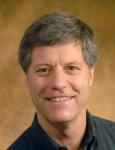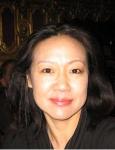|
 William K. Mahony is the Dana Professor of Religion and Chair of the religion department at Davidson College, North Carolina, where since 1982 he has taught courses in Asian religions, with special attention given to religions originating in India. Mahony earned his BA from Williams College, MDiv from Yale University, and PhD in history of religions from the University of Chicago. He is a recipient of an NEH fellowship and a number of teaching awards. William K. Mahony is the Dana Professor of Religion and Chair of the religion department at Davidson College, North Carolina, where since 1982 he has taught courses in Asian religions, with special attention given to religions originating in India. Mahony earned his BA from Williams College, MDiv from Yale University, and PhD in history of religions from the University of Chicago. He is a recipient of an NEH fellowship and a number of teaching awards.
Mahony has served the AAR in various capacities, including as a member of a previous Board of Directors (1998–2004) and of the Executive Committee (2001–2004), and as Program Chair and President of the Southeast Region (1991–1993). He currently is one of the judges for the AAR Awards for Excellence in the Study of Religion in the Historical Studies category.
Mahony’s books include The Artful Universe: An Introduction to the Vedic Religious Imagination (State University of New York Press, 1998) and Exquisite Love: Heart-centered Reflections on the Narada Bhakti Sutra (Anusara, 2011). He was assistant editor and a major contributor to the sixteen-volume Encyclopedia of Religion (first edition, Macmillan, 2005). He has also written dozens of articles, chapters, and reviews in journals, edited books, and encyclopedias, mostly on religion in South Asia. Mahony was the founding President of the Muktabodha Indological Research Institute.
Statement on the AAR
In the thirty years since I first became fully active in the AAR, we have become an increasingly diverse group and the scope of our activities as a professional association has increasingly widened. To draw on some phrasing from our mission statement, I feel that the AAR in general is doing well at promoting excellence in scholarship and teaching in the field of religion, furthering our understanding of religions in their many forms, and expanding public awareness of the place of religion in the contemporary world. When I look at the number of programs administered by the AAR — the robust schedule at our Annual Meeting, the employment service, the numerous workshops and summer seminars we support, the consultative services we offer to college and university departments in our field, the opportunities given our members by several regional organizations, the grants and awards we present, our many publications and publication projects, and our outreach to the public beyond the academic setting through various means (there is more that could be mentioned) — I can’t help but feel that the AAR is doing much to support its members and fulfill its stated mission.
The process of growth and diversification has not always been a smooth one, of course. Sometimes people or groups of people have felt that their scholarly interests or professional concerns were not being represented or facilitated as well as they might be. For some, the expansion of AAR programming has not been full enough. We need to be attentive to this sentiment. Some of our members turned toward other professional associations in order to participate in conversations they otherwise would hope to have held via AAR programming. I am clear in my own feeling, however, that the AAR as a whole should and can be a place where colleagues from our increasingly diverse profession can share their interests with each other, both as specialists in particular fields and as those invigorated by learning from specialists in other fields.
This is, in part, where I could be of some service to the Board of Directors. Because I would not represent a particular constituency within the AAR, I would listen to the interests and concerns of any of our constituencies and share them with the Board and executive leadership. I would allow this information to inform my contribution to Board discussions and decisions regarding the AAR’s overall vision, structure, programming, and fiduciary planning in support of its mission.
Also, I would bring to Board discussions and decisions some personal familiarity with continuities and changes within the AAR over the years. My perspective would be informed in part by what I have learned through my active participation on previous national and regional AAR Boards. You can see a summary of that activity in the short biography I have included with this statement.
Finally, as a professor at an undergraduate college of the liberal arts, I am committed to the value of effective teaching at that level and would encourage continuing and expanding AAR programming in support of it. And, as one who pursues an active research and publication agenda, I am interested in supporting others who similarly wish to focus their attention on expanding the scope of our understanding of religion through those means. It is clear to me that both these sets of professional commitments and interests serve our common mission to promote excellence in teaching and scholarship in religion. As an At-Large Director, I would approach Board discussions and decisions regarding the continuing and expanding work of the AAR from both perspectives.
|
|
 Jin Y. Park is an associate professor of Asian philosophy and religion at American University. She earned her PhD from the State University of New York, Stony Brook. Her research focuses on East Asian Zen and Huayan Buddhism, Buddhist–Western comparative thought, Buddhism’s encounters with modernity, and Buddhist ethics. She is the author of Buddhism and Postmodernity: Zen, Huayan, and the Possibility of Buddhist Postmodern Ethics (Lexington Books, 2008) and editor of four volumes, including Buddhisms and Deconstructions (Rowman and Littlefield, 2006) and Makers of Modern Korean Buddhism (State University of New York Press, 2010), in addition to numerous journal articles and book chapters. Park is also a recipient of the Mellon Fellowship, the Korea Foundation Advanced Research Grant, and several grants for the translation of Buddhist texts. Jin Y. Park is an associate professor of Asian philosophy and religion at American University. She earned her PhD from the State University of New York, Stony Brook. Her research focuses on East Asian Zen and Huayan Buddhism, Buddhist–Western comparative thought, Buddhism’s encounters with modernity, and Buddhist ethics. She is the author of Buddhism and Postmodernity: Zen, Huayan, and the Possibility of Buddhist Postmodern Ethics (Lexington Books, 2008) and editor of four volumes, including Buddhisms and Deconstructions (Rowman and Littlefield, 2006) and Makers of Modern Korean Buddhism (State University of New York Press, 2010), in addition to numerous journal articles and book chapters. Park is also a recipient of the Mellon Fellowship, the Korea Foundation Advanced Research Grant, and several grants for the translation of Buddhist texts.
Park has served in various leadership roles at the AAR. In 2002, in collaboration with her colleague, she created the Zen Buddhism Seminar and co-Chaired it throughout its five-year tenure (2002–2006). She served on the steering committee of the Korean Religions Group from 2002–2006 and has been serving as co-Chair for the Group since 2007. Since 2010, Park has also served on the steering committee of the Buddhist Philosophy Group.
Statement on the AAR
I am grateful for the nomination for this position and welcome the opportunity to serve the AAR and its members.
I have been involved with the AAR community since 1996, when I gave my first AAR presentation at the Annual Meeting held in New Orleans as a fledgling graduate student. Since then, I have participated every year, without fail, in the Annual Meeting, as a paper presenter, respondent, presider, or session organizer. Along the way, I have learned to identify and use resources available in the AAR by connecting with individuals and groups in the community. These connections enabled me to be mentored by scholars whom I respected, to collaborate with peers in pursuit of exciting projects, and to work with first-rate scholars from diverse backgrounds. I believe that I can call myself a scholar who has, in great part, developed my academic career through my participation in the AAR and the friendships and collaborations that I have created through this network.
Through participation in the AAR as an individual scholar and as a member of the leadership community, I have learned how the AAR functions and how it serves its members. I have also listened to the diverse demands of its individual members and paid attention to how the leadership at the AAR meets the needs of its members as it introduces new measures.
At-Large Directors serve as a bridge between the members of the AAR and its Board of Directors. If elected to this position, my primary goal would be to promote more and better connections in the AAR. Members from different religious traditions with different regional focuses have different concerns with regard to the way the AAR allows for due representation of any given subfield. Members at different stages of their careers have different priorities and demands as they participate in the AAR and develop their careers. The diversity of our field and the size of this organization make it difficult for the AAR to meet all the demands from its members, but better communication between the members and its governing body will maximize the capacity of the AAR and benefit its members.
The issues that I consider important for the prosperity of our field and to benefit individual members include: 1) Balanced representation of different geographic and religious traditions; 2) Development of programs to better guide graduate students and junior scholars into the job market and in the formation of their scholarship; and 3) Sensitivity to the relationship between the academic world and interests in the nonacademic community, so that our scholarship can properly reflect the role and meaning of religion in our society.
In addition to the leadership roles I have had serving as a co-Chair and a steering committee member for different units at the AAR for more than ten years, I have experience in organizing and managing international scholarly societies and conference panels on diverse themes through organizations, including the International Society for Buddhist Philosophy — for which I am a founding co-Chair — and the American Philosophical Association.
I feel that I am prepared to represent the members of the AAR so that their voices can be heard and reflected in the way that the AAR functions in our academic lives. I understand that the diversity of our society and the academic world challenge us in the continued renewal of our academic society, but I believe that we can make the best out of such challenges and make our scholarship and academic life more vibrant and meaningful.
|
![PDF-NOTE: Internet Explorer Users, right click the PDF Icon and choose [save target as] if you are experiencing problems with clicking.](http://rsnonline.org/templates/rsntemplate-smallmasthead/images/pdf_button.png)

![PDF-NOTE: Internet Explorer Users, right click the PDF Icon and choose [save target as] if you are experiencing problems with clicking.](http://rsnonline.org/templates/rsntemplate-smallmasthead/images/pdf_button.png)
